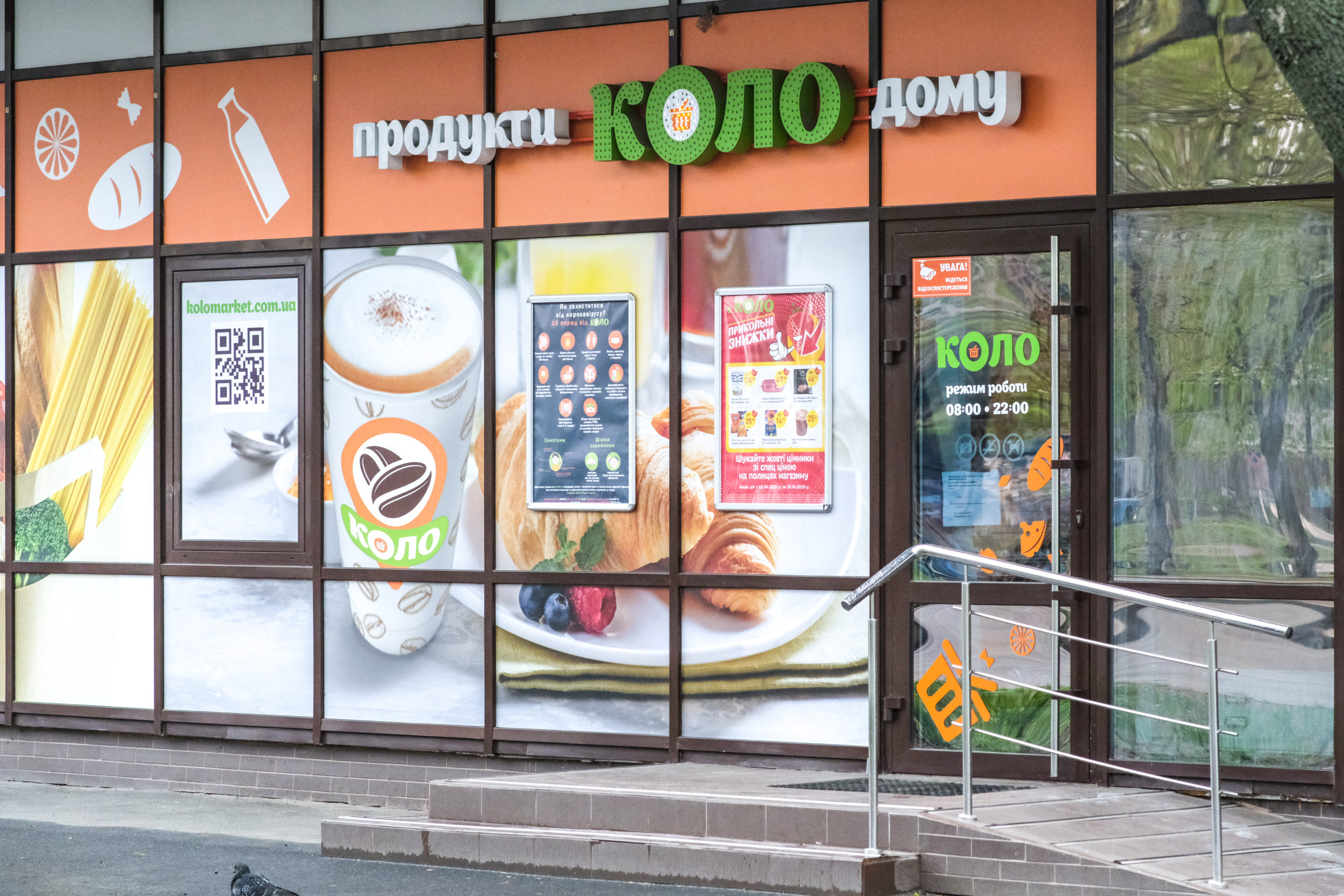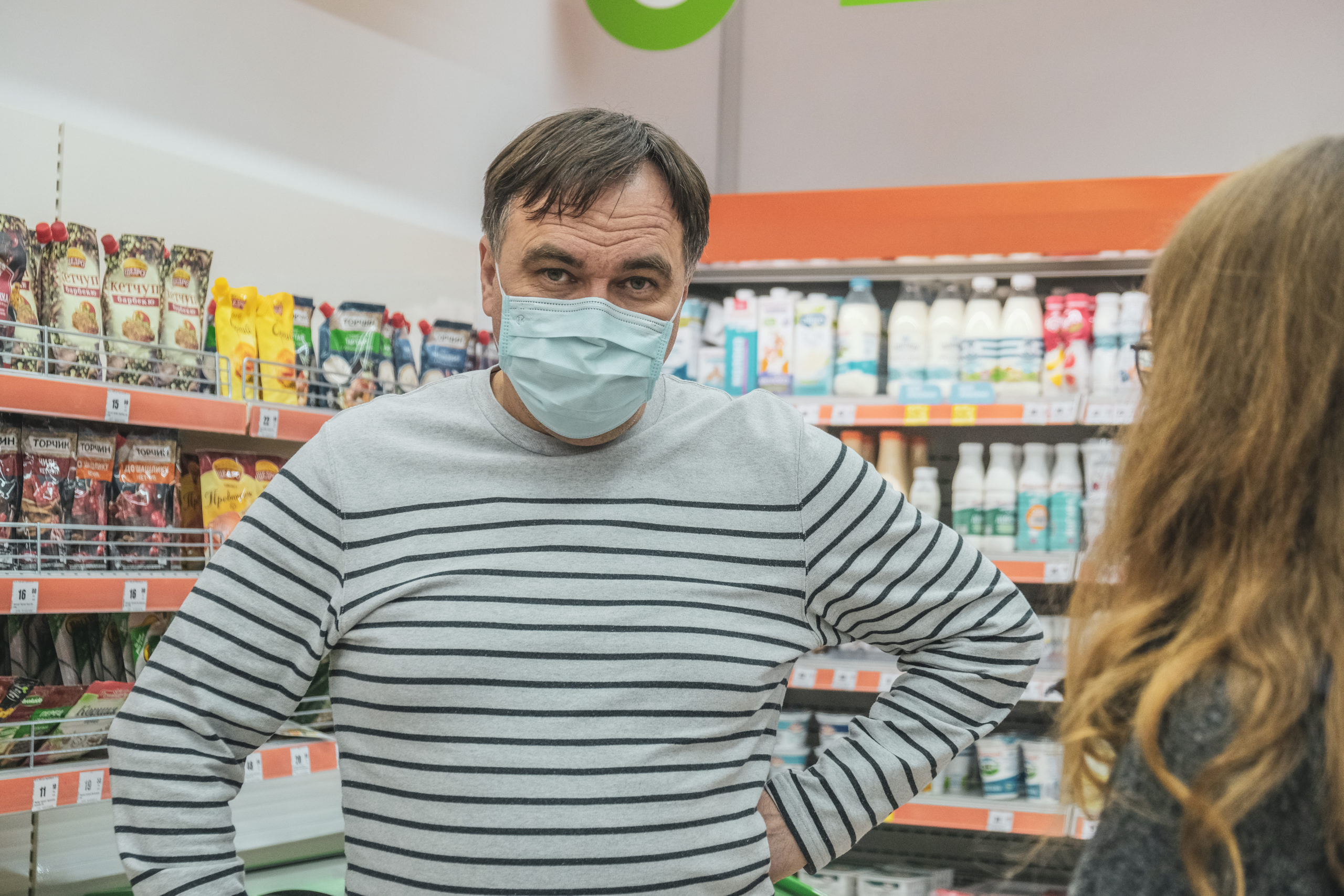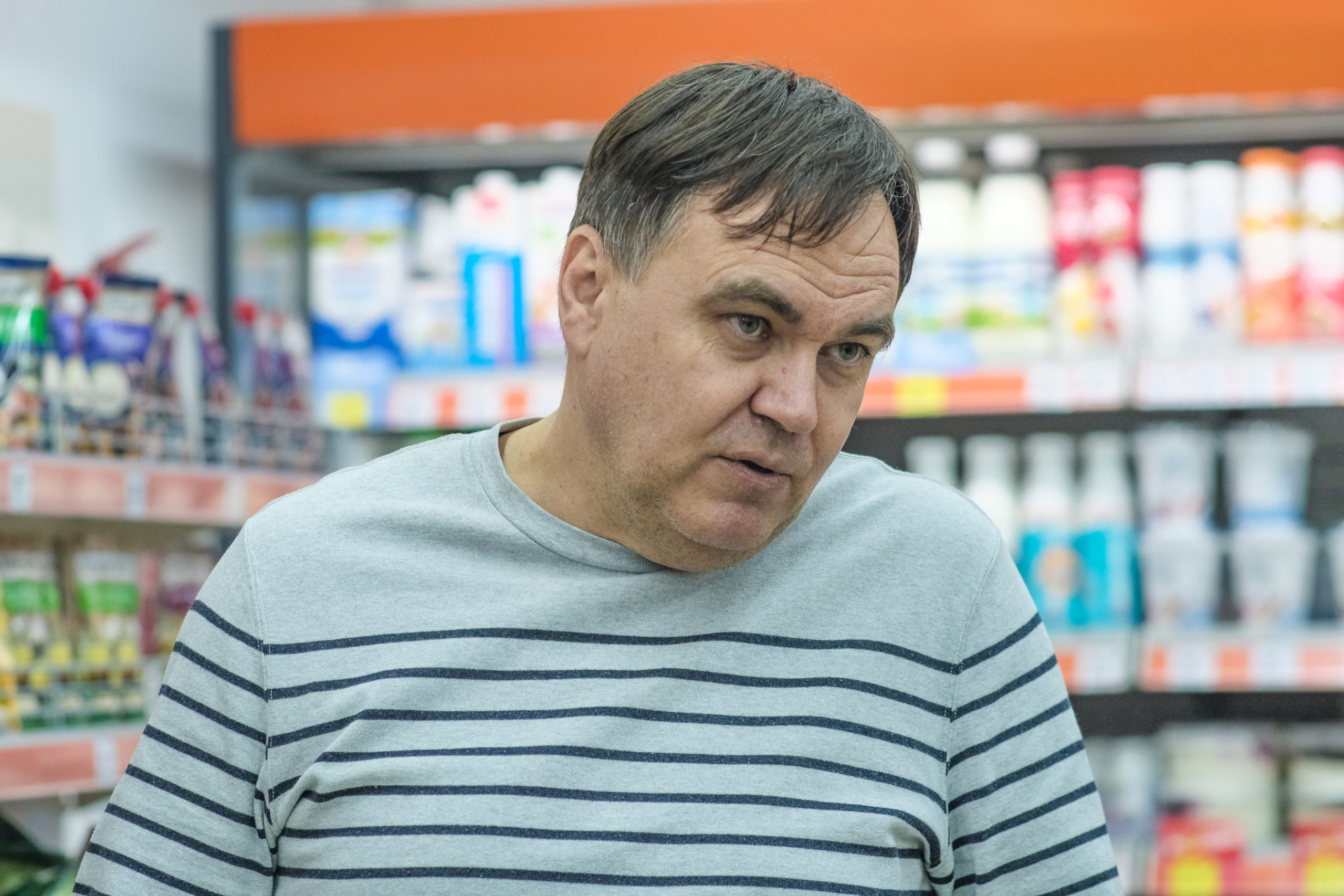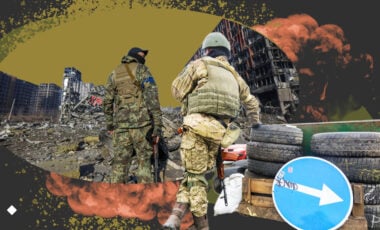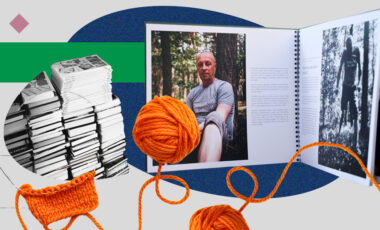Business during a storm. How the near-house stores "KOLO" expand even during the crisis
Stores near your house could be a nice place, not stalls scary to go to. They should be light, safe, and with a suitable range. The KOLO chain has decided to move the European standard of everywhere markets "within walking distance" to Ukraine and is rapidly winning this niche. Even in quarantine, it opens new locations almost every week. We asked the company's CEO about the market situation and anti-crisis recipes

The end of the hypermarket era. In developed markets, they've long stated that giant premises on the outskirts of cities are without prospects. The customer saves time. Online sales and local platforms win.
When quarantine started, having a good grocery store nearby became even more apparent. Now Ukrainians have the luxury of leaving the house only to stores and pharmacies. In this context, a grocery retail segment became one of the few businesses that didn't stop in the time of crisis. Rubryka went to one of the most powerful players, claiming the place of the Ukrainian "Zabka" to discover what's happening on the market.
In Europe, the streets are fraught with branded grocery stores "within walking distance." Zabka in Poland, Coop in Hungary, Carrefour City in France, SPAR, 7-Eleven, FamilyMart, and many others. They have become multinational brands. "Networkers" have occupied this niche in many countries, and we have a "wild field" in this sense in Ukraine. The KOLO network undertook it.
With the start of the pandemic, they adapted business plans at KOLO, not changed it. According to the company's top manager, Serhii Voitsekhovsyi, they want to "max out" the segment of finished products and pastries even more. So he announced his willingness to support small and medium-sized businesses and private entrepreneurs working in these fields.
For our Business column, we spoke with Yevhen Kulinych, CEO of the Aritail company, which develops the "KOLO" brand. It's not the first crisis in his professional life. He's been in retail as a manager for 23 years. Why does the crisis mean an opportunity, and how has the company acclimatized to quarantine? That's where we started the conversation.
"We went for lower prices for socially relevant goods to win in the long run"
Yevhen Kulinych: You don't always expect a crisis. Before quarantine, we understood what was happening. A week in advance, we delivered more fast-moving products to our warehouses, the things people need first.
— Has quarantine affected online prices?
— Due to the fact that we purchased stocks in advance, at some point, it was possible to keep prices even lower than in chain supermarkets. We raised no markup. I remember when there was swine flu (in 2009 Yevhen Kulinych was the manager of one of the retail pharmacy chains, the KOLO chain was launched in May 2017 – Ed.), some inspectors came, rolled out cash registers, and even compared profit to see if prices raised. We don't play with such things. You can win once but then lose a hundred times. So, in this situation, we even reduced margins.
All stores of the network lowered prices of dairy products to the cost value since quarantine began. Children essentially need these products. As we took them, we sold them to secure our social role during this period (at the time of release, the KOLO network also delivered dairy products to residents of a dormitory near Kyiv with a recorded outbreak of coronavirus – Ed.). The same situation with masks. We will win in the long run if we help to survive this crisis.
— What about logistics and sustenance of stores?
— Logistics has changed little. Goods arrive at the stores every day. At some locations — every other day. We had fears about imports, but it continues from European countries.
We sent the back office to remote work and increased security measures in the stores. The key thing is that we fully follow all the Ministry of Health's instructions. We constantly have a huge number of inspections, control is being done. We have cleaning 4 times a day; we disinfect all surfaces. There are disinfectants at the checkout. Employees are in masks and gloves.
— Do you feel a change in the market situation?
— Yes. These are also objective factors. We have fewer people in stores as we focused also on employees of offices, and arrangements in walkthroughs.
And people are running out of money. Demand was wavy. When the outbreak began in March, people were buying everywhere. Over time, people went out less often. And they took only essentials. Although in nearby stores, we see no enormous drop, we can still feel it.
Prolonging quarantine will only worsen the situation. According to the data from Europe, in those countries where quarantine lasts longer, turnover fell by 50%.
— But, you even got involved in providing help. I saw that you launched a flash mob #helpdoctors.
— Yes, we delivered products to various medical institutions, where they conduct tests for coronavirus. We took pizzas, disinfectants, protection there. Everything that they missed. Then we handed over several thousand food kits to elderly Ukrainians for free.
"We use this time, rent new premises"
— I was surprised that even during the quarantine you open new stores. Why?
— The quarantine will end someday. All the plans we had for the opening of new stores did not go anywhere.
Our niche needs rapid expansion. And neither in March nor in April, we didn't stop any opening. We opened 9 stores in March. The same number is planned for April. By and large, we have bigger plans. We want to have 250 stores by the end of 2020. Therefore, now we need to increase development, to open not 9, but 12 stores. This week we opened the 130th store. Repairing is underway in dozens of locations, and we are constantly looking for new ones.
Now we have stores in Kyiv and on the outskirts. In the next one and a half to two months, we plan to expand to Odessa. We continue looking for new premises as much as possible. And if we find them, then we will open new locations.

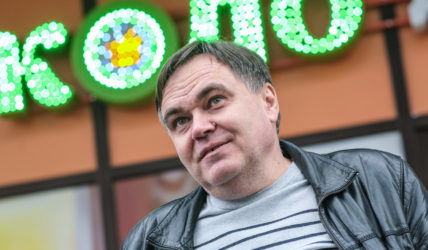
— How do you determine where the next KOLO place will open?
— We approach each location individually and calculate the potential. There are densely populated areas, walkthrough locations, points near the offices. Our marketers analyze all these aspects. And quite successfully. For three years of running the network, we have signed over 150 lease agreements.
During this period, we have proved ourselves as a reliable business for landlords. Seeing what's happening on the market, they will seriously think next time who to choose for rent: a gaming place or a steady grocery store. We come to the location for many years. We are great customers. It confirms that there are both unpleasant situations and opportunities in the crisis.
Tactically, we are now increasing the search for premises. We use this time when people close their business and have no idea what to do with the premises. We are ready to take them. And we do take them.
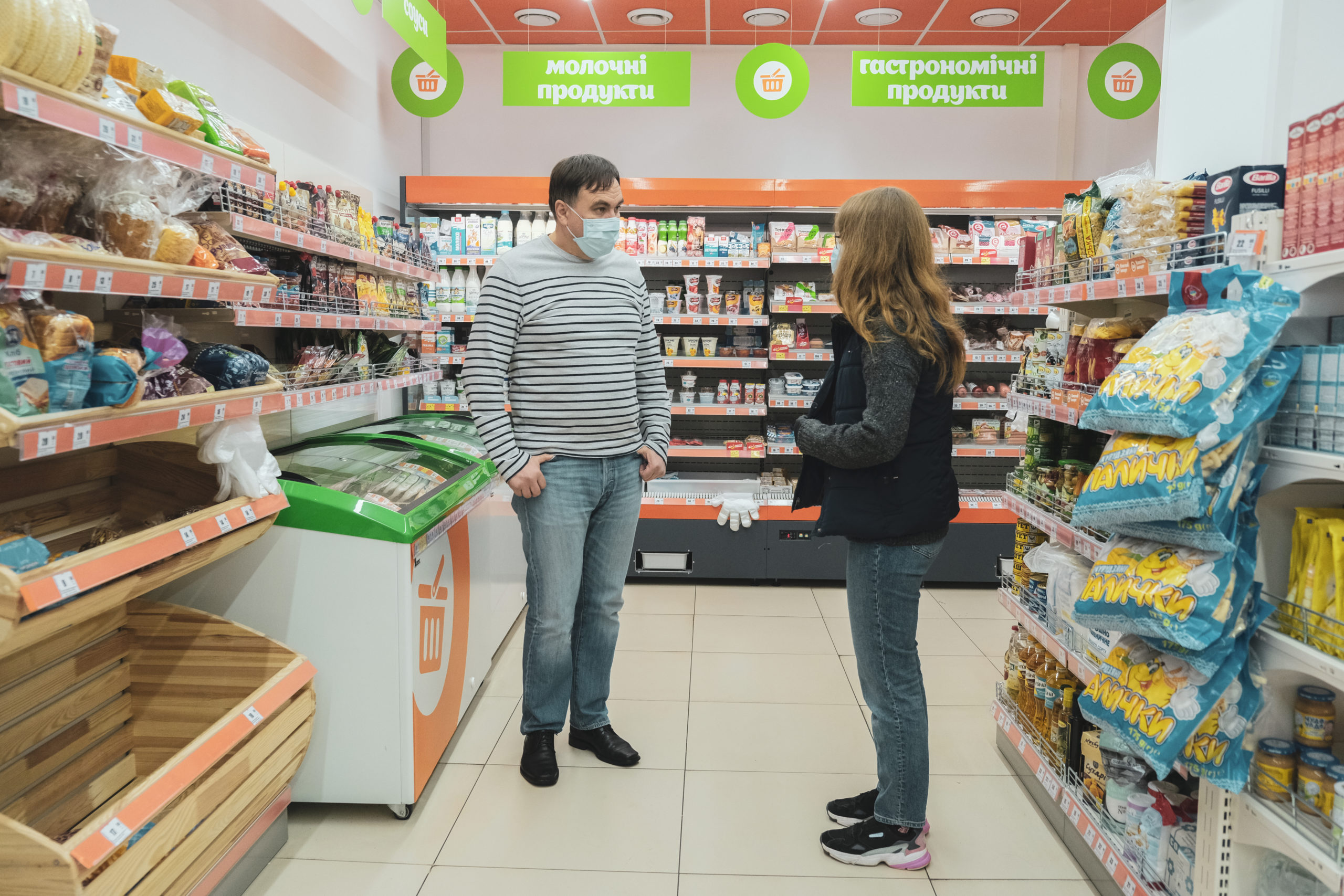
Requirements in the network are standardized. The area of each store is about 60 sq.m. on the ground floor
— KOLO launched new services during the quarantine. How is the "run-in"?
— Yes, the first step was to launch ordering products by phone. Some people are worried or afraid to come to the store. That's why we created this feature. Since our staff is small, we have locations where you can call, order everything in advance. There we will pack everything. You just have to come and pick up the order and go. That's the minimum time spent in the store. We launched this feature at five stores in Kyiv.
You can order products in our online store in Comfort Town, and they'll be delivered within half an hour. Compared to a large online store, we lose in the range. But we do our best to offer everything needed. Now we want to start pizza delivery. Some stores have pizza cafeterias. We're developing the service launch on Mashynobudivna street and on Tymoshenko street since our cafeterias can't work in a usual mode now but can work for takeaway and delivery.
Working with fast food is a field where we can compete with any supermarket. Including because of the speed. The nearby store will be closer to many than a large supermarket. So we dedicate the time spent on quarantine to try new things that can "score big."
"Connecting the future with the franchise"
— Do you think your niche of near-the-house stores is favorable in these circumstances?
— Yes, everyone needs it. Given that people are not advised to move too far away from home, we feel confident in some neighborhoods. In Comfort Town, where there are no other markets, we feel positive. People see we deliver fresh products every day.
— Are you strategically planning to launch a franchise?
— We believe that the quarantine may even have a positive effect on the transition to a franchise model.
Now we are working out the franchise procedure, preparing a model, and a package of proposals. We believe that our future development is linked to the franchise, probably even more than to anything else.
Most likely, we'll come out with the proposal closer to the end of the year.

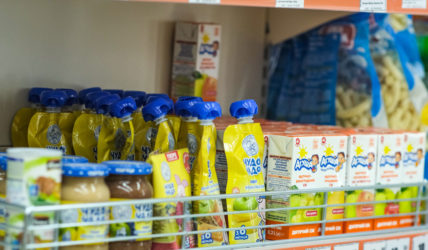

— Due to the fact that the global nature and interdependence of the world turned out to be a problem rather than an advantage at one point, everyone understood that it's necessary to develop local producers. What do you think about it? How do you choose the suppliers?
— There are products that we can't produce locally, such as bananas or Borjomi water. We have such an extent that we look for offers directly; we work with importers directly. Talking about the locals, we work with market leaders impossible to work without, and with small suppliers. We also launch brands that have small production, make a quality product, and will grow with us.
We are not a particular store. We are a store for everyone. Therefore, we try to buy such products corresponding to quality, the price, and our willingness to buy and use it.
Partnership piece




